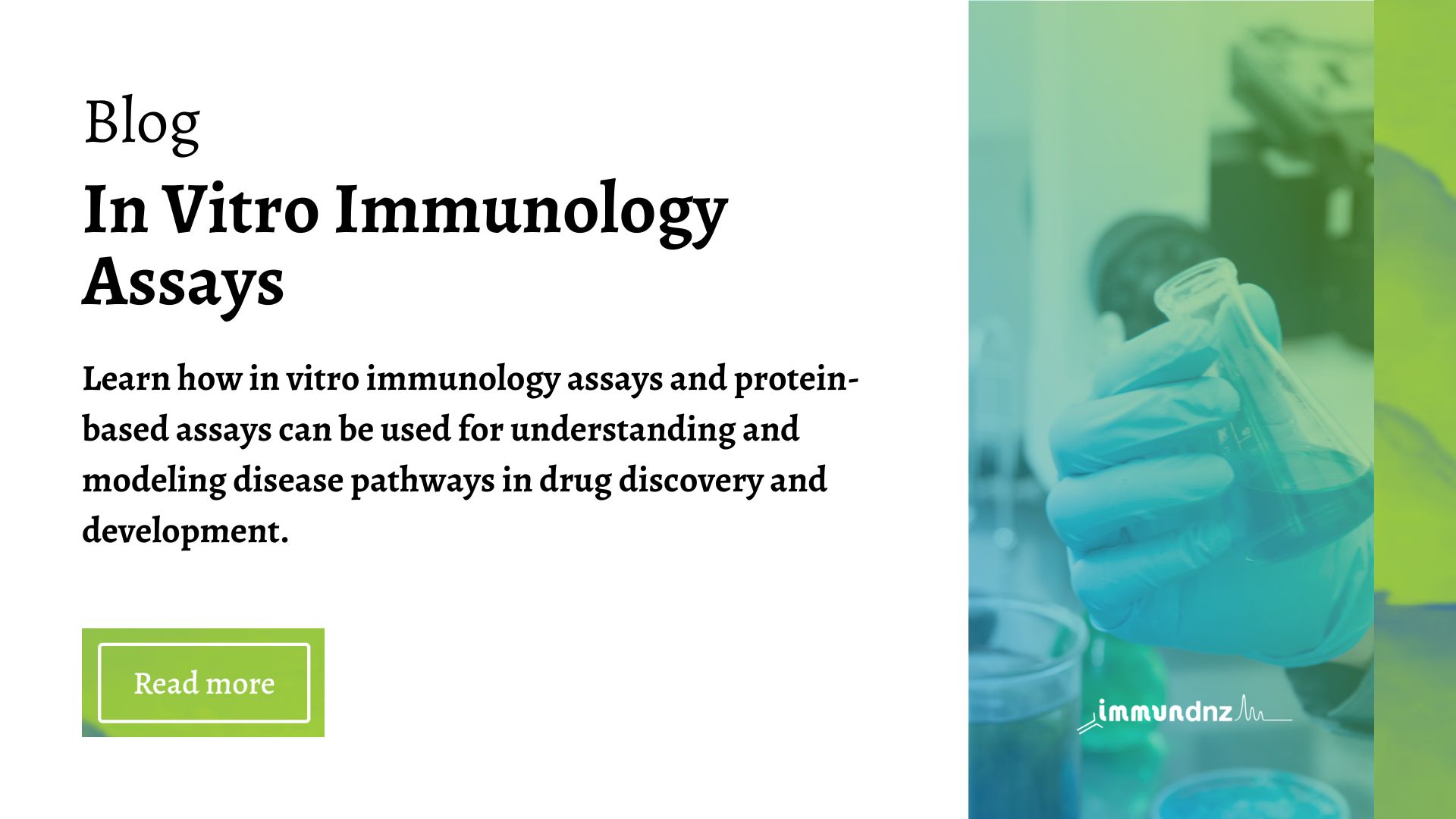In the pursuit of novel therapeutics, the development of robust and reliable assays is paramount. In recent decades, significant strides have been made in the field of drug discovery, with the advent of sophisticated in vitro immunology assays and protein-based assays revolutionizing the way researchers screen, evaluate, and optimize potential drug candidates. This essay explores the evolution of these assays, highlighting their importance in elucidating complex biological mechanisms, identifying therapeutic targets, and accelerating the drug development process.
The Rise of In Vitro Immunology Assays
In vitro immunology assays play a central role in drug discovery, offering researchers a controlled environment to investigate immune responses, immune cell functions, and interactions with potential drug candidates. These assays encompass a wide range of techniques, from simple cell proliferation assays to complex co-culture systems and high-content imaging platforms. By leveraging human primary cells, immortalized cell lines, or engineered cellular models, researchers can simulate physiological conditions and interrogate specific aspects of the immune system with precision and reproducibility.
Assessing Immune Cell Activation and Function
Immunomodulatory drugs, including cytokine inhibitors, immune checkpoint inhibitors, and cell-based therapies, represent promising avenues for the treatment of cancer, autoimmune diseases, and inflammatory disorders. In vitro immunology assays enable researchers to assess the effects of these drugs on immune cell activation, proliferation, differentiation, and effector functions. For instance, cytokine release assays measure the secretion of pro-inflammatory or anti-inflammatory cytokines in response to drug stimulation, providing insights into immune cell activation and polarization. Similarly, proliferation assays, cytotoxicity assays, and functional assays such as phagocytosis or cytotoxicity assays evaluate the impact of drugs on immune cell viability, function, and anti-tumor activity.
Modelling Disease Pathophysiology
In vitro immunology assays serve as invaluable tools for modeling disease pathophysiology and dissecting the underlying mechanisms of immune-mediated disorders. By recapitulating key aspects of disease pathology, such as aberrant immune activation, dysregulated cytokine signaling, or defective immune cell functions, researchers can elucidate disease mechanisms and identify novel therapeutic targets. For example, co-culture assays using patient-derived immune cells and tumor cells enable the study of immune-tumor interactions and the evaluation of immunotherapeutic interventions in a personalized manner. Similarly, organ-on-chip platforms and 3D culture systems provide physiologically relevant models of tissue microenvironments, offering insights into tissue-specific immune responses and drug effects.
Advancements in Protein-Based Assays
Proteins serve as central players in virtually every biological process, making them attractive targets for drug discovery and therapeutic intervention. Protein-based assays enable the sensitive and specific detection, quantification, and characterization of proteins of interest, facilitating target validation, biomarker discovery, and mechanism of action studies. These assays encompass a diverse array of techniques, including enzyme-linked immunosorbent assays (ELISA), western blotting, immunoprecipitation, protein-protein interaction assays, and mass spectrometry-based proteomics.
Target Validation and Biomarker Discovery
Protein-based assays play a critical role in target validation, confirming the presence, localization, and functional activity of potential drug targets in relevant biological samples. By quantifying target expression levels, post-translational modifications, or interactions with binding partners, researchers can assess the druggability and therapeutic potential of candidate proteins. Moreover, protein-based assays enable the discovery of biomarkers, molecular signatures indicative of disease status, treatment response, or patient prognosis. Biomarker assays such as ELISA or immunohistochemistry allow for the quantitative measurement of biomarker levels in clinical samples, facilitating patient stratification, treatment selection, and monitoring of therapeutic responses.
Unraveling Protein-Protein Interactions
Protein-protein interactions (PPIs) play a pivotal role in cellular signaling, protein regulation, and disease pathogenesis, making them attractive targets for drug discovery. Protein-based assays enable the characterization of PPIs, elucidating the molecular mechanisms underlying biological processes and identifying potential intervention points for therapeutic targeting. Techniques such as co-immunoprecipitation, surface plasmon resonance (SPR), and proximity-based assays (e.g., BiFC, BRET) allow for the detection and quantification of protein complexes, enabling the screening and optimization of PPI inhibitors with high specificity and affinity.
High-Throughput Screening and Drug Development
In the era of high-throughput screening (HTS), protein-based assays have become indispensable tools for drug discovery, enabling the rapid and efficient screening of compound libraries to identify lead candidates with desired pharmacological properties. HTS assays, such as fluorescence-based binding assays or enzymatic activity assays, leverage protein targets or protein-protein interactions as readouts to identify potential drug candidates that modulate target function. Moreover, protein-based assays facilitate the characterization of drug candidates in preclinical studies, assessing their pharmacokinetic properties, mechanism of action, and therapeutic efficacy in relevant disease models.
Conclusion
In vitro immunology assays and protein-based assays have revolutionized the field of drug discovery, offering powerful tools for elucidating biological mechanisms, identifying therapeutic targets, and advancing novel therapies for a wide range of diseases. By harnessing the capabilities of these assays, researchers can accelerate the drug development process, optimize therapeutic strategies, and improve patient outcomes. As technology continues to evolve and our understanding of disease biology deepens, the role of in vitro immunology assays and protein-based assays in drug discovery will undoubtedly remain indispensable in shaping the future of medicine.


